There’s no doubt that growing up can be an intense, stressful process for adolescents and young adults. It’s normal for young people to experience difficult, somewhat unmanageable emotions at some point. However, problems may arise when these emotions are prolonged or under-addressed. In the last decade, teens have become exponentially more depressed and anxious. Whether it’s social media, unrealistic body standards or isolation from the pandemic, teens today are under more duress than ever before:
Nearly 75% of parents have watched their child's emotional well-being decline since this pandemic began.
With the increased use of social media in the last decade (2010-now) has come a 151% increase in suicide for girls ages 10-14 and an 189% increase for non-fatal self harm episodes in girls ages 10-14.
The increased use of social media has correlated with a 70% increase in suicide for girls ages 15-19 and a 62% increase in non-fatal self harm episodes for girls ages 15-19.
Is your child depressed or anxious?
Parenting a child with anxiety or depression can be lonely, confusing and even scary at times. Is your child experiencing temporary moments of sadness, or is he depressed? Is your child struggling with anxiety, or is she just stressed out? With all that teens and young adults are going through, it’s hard to diagnose these issues without clinical assessment. With this in mind, here are some of the signs of depression and anxiety:
Irritability, anger, and agitation: these are some of the most prominent symptoms of depression in teenagers. Although sadness is a common predictor of depression in adults, adolescents tend to be easily frustrated, grumpy or even hostile.
Withdrawal from family, friends, and activities
Changes in sleeping patterns and eating habits
Consistent hopelessness, sadness, crying, guilt, or feelings of worthlessness
Fatigue, exhaustion, or restlessness
Unexplainable pains or body aches (such as a stomach ache or headache)
Lack of energy, motivation, and enthusiasm
Unable to focus and decline in academic performance
Suicidal thoughts or considerations
The following are some ways that young people act out in order to cope with mental health challenges:
Risky and/or violent behaviors such as binge drinking, reckless driving, unprotected sex or bullying.
Running away: talking about, attempting, or successfully running away from home is a blatant cry for help from a struggling teen.
Abuse of drugs and alcohol: substance abuse might dull your child’s emotions, but it actually brings more harm than help.
Low self-esteem: depression is highly associated with low self-esteem. People struggling with low self esteem may experience self-deprecating thoughts, like “You’re ugly. You’re a failure. You’re not good enough. You’re unworthy. You should be ashamed.” etc.
Addiction to technology: getting sucked into social media, gaming or the internet is an escape from reality and a pathway to further isolation.
Issues at school: such as low attendance or skipping school, poor academic performance (due to lack of focus or minimal energy), and a newfound frustration with schoolwork.
Additional mental health diagnoses: these include anxiety, bipolar disorder, eating disorders and self-harm.
How Wilderness Therapy Can Help Your Teen Who is Battling mental and emotional challenges:
The best ways you can help your teenager struggling through depression or anxiety is to listen, offer support, and get them help. It will be draining, exhausting and frustrating. But your teen isn’t intentionally testing you; they may be simply trying to cope with the overwhelming effects of a mental health issue.
At Blue Ridge, we address the root symptoms and chronic behaviors associated with depression, anxiety and bipolar disorder as well as other mental health issues and disorders. Our program is an effective treatment option for various reasons, like a schedule with normal sleep hours, consistent daily exercise, and a balanced diet of healthy foods. Our team of expert therapists provide high quality clinical treatment for individual students; together they process the underlying issues, build towards assertive communication, and frequently practice healthy expressions of feelings and positive coping mechanisms.
Activities your child will participate in at Blue Ridge:
Hiking
Cooking
Bowdrilling
Reading/writing
Yoga/mindfulness
Therapy with a clinician
Milieu Therapy
Academics*
Setting up and taking down camp
Ample quality sleep
*See our academics page for more information about course credits at Blue Ridge.
Our wilderness programming provides adolescents and young adults the opportunity to return to their body and their environment by removing the distractions of everyday life and providing ample opportunities to reset.
The powerful combination of nature and clinically-based therapies can help your struggling teen win the fight against mood disorders. If your child is facing depression, anxiety or other mood disorders, we are here to help.
Take the time to reach out to us so that together we can discuss the options for your child and family. We consider each individual application: begin the admissions process today. We can work together to ensure that your child gets the support they need.
Blue Ridge seeks to help families discover and address underlying issues that may contribute to their child’s struggles. With an individualized clinical regimen, the treatment team at Blue Ridge will integrate a personalized treatment plan for each student as they learn and grow in the wilderness, rediscovering their power and values, and finding new ways to cope with tough emotions.

